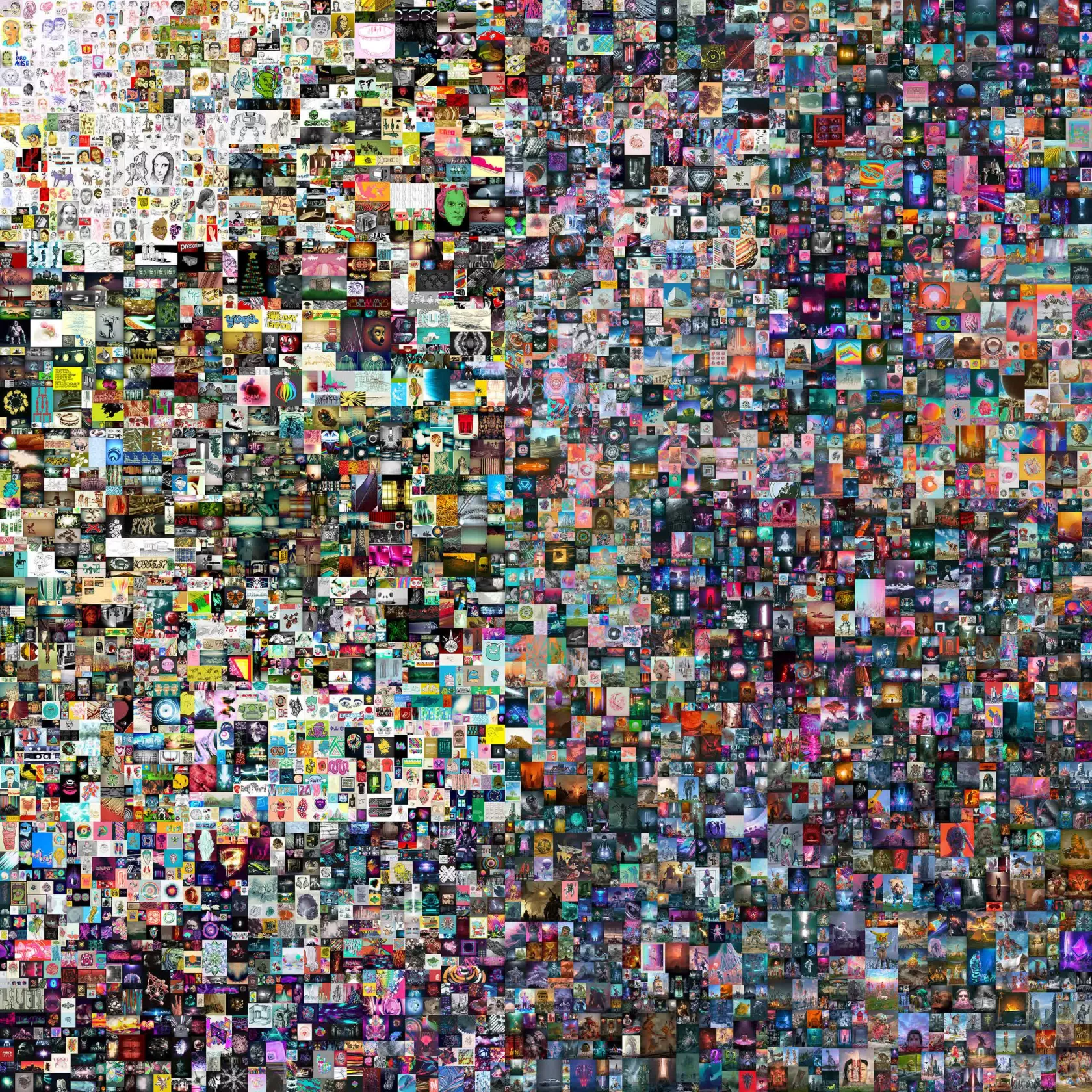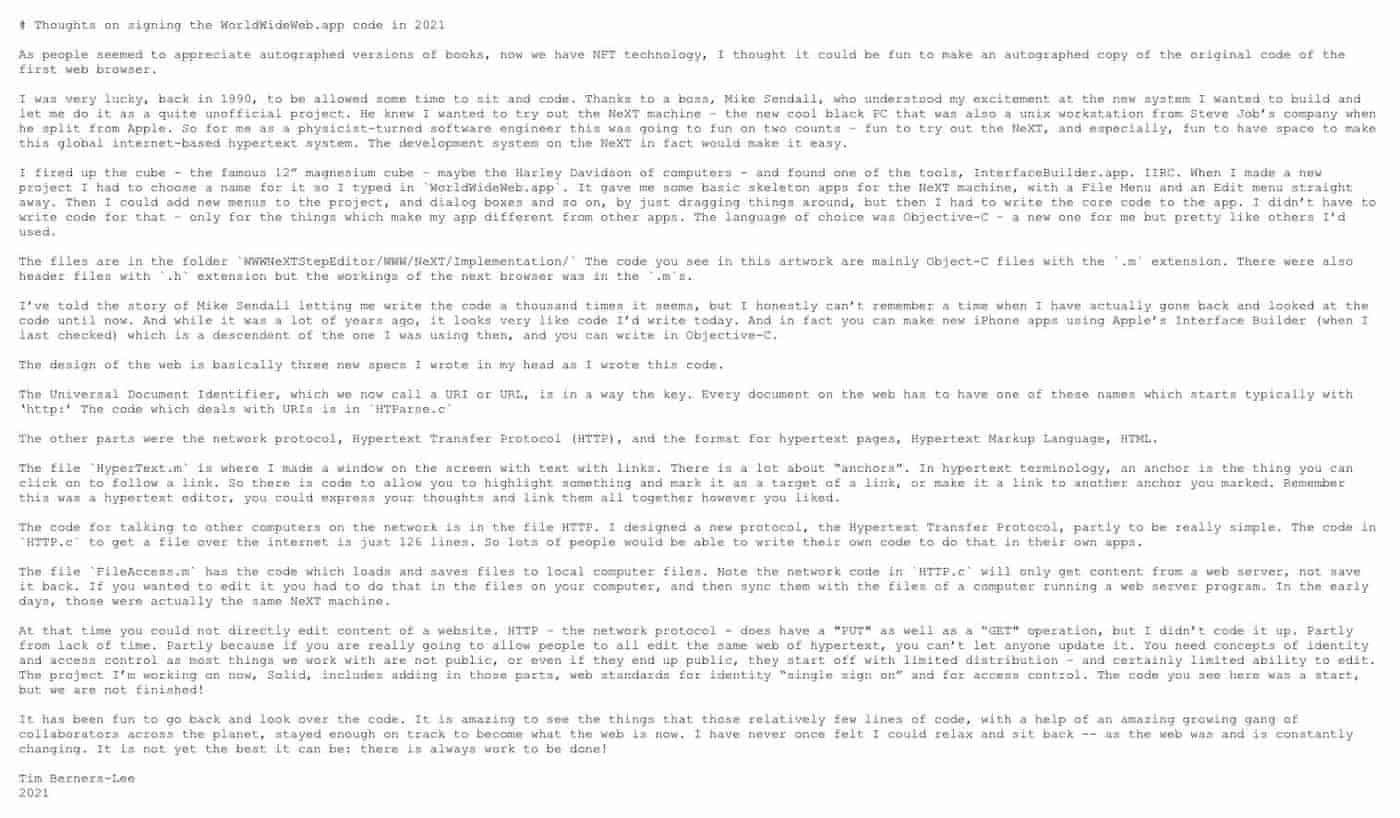Recap: World Wide Web inventor Sir Tim Berners-Lee has defended his decision to auction off the web's original source code as a non-fungible token (NFT) after critics argued it goes against the values of his invention. The auction, which only began yesterday, has already reached $2.2 million from 41 bids.

Berners-Lee last week revealed that the "This Changed Everything" NFT would go on sale at Sotheby's with a starting price of $1,000. It includes the original time-stamped files containing the source code, an animated visualization of it being written, a letter produced by Berners-Lee reflecting on the creation process, and a digital "poster" of the entire code created by him from the original files using Python.
Berners-Lee's letter, part of Sotheby's auction
Some have claimed that selling an NFT of the source code contradicts the free and open nature of the world wide web, but Berners-Lee disagrees. "…the web is just as free and just as open as it always was. The core codes and protocols on the web are royalty free, just as they always have been. I'm not selling the web – you won't have to start paying money to follow links," he told The Guardian.
"I'm not even selling the source code. I'm selling a picture that I made, with a Python programme that I wrote myself, of what the source code would look like if it was stuck on the wall and signed by me."
"If they felt that me selling an NFT of a poster is inappropriate, then what about me selling a book? I do things like that, which involve money, but the free and open web is still free and open. And we do still, every now and again, have to fight to keep it free and open, fight for net neutrality and so on."
Sotheby's said proceeds from the sale of the NFT will go toward initiatives supported by Berners-Lee and his wife, Rosemary Leith.
"I've always been interested in the digital world of whether we can use NFTs to get funding back to creative people like musicians and artists," he said. "From the point of view of selling an artwork, artists need […] it's useful in the digital world to have the equivalent of making an item."

With six days of This Changed Everything's auction still left to run, the NFT is expected to become one of the most expensive in history, though it has a long way to go before breaking the record; auction house Christie's and artist Mike Winkelmann made $69 million with "EVERYDAYS: THE FIRST 5000 DAYS," shown above.
Image credit: drserg
https://www.techspot.com/news/90183-tim-berners-lee-defends-auctioning-nft-web-original.html
